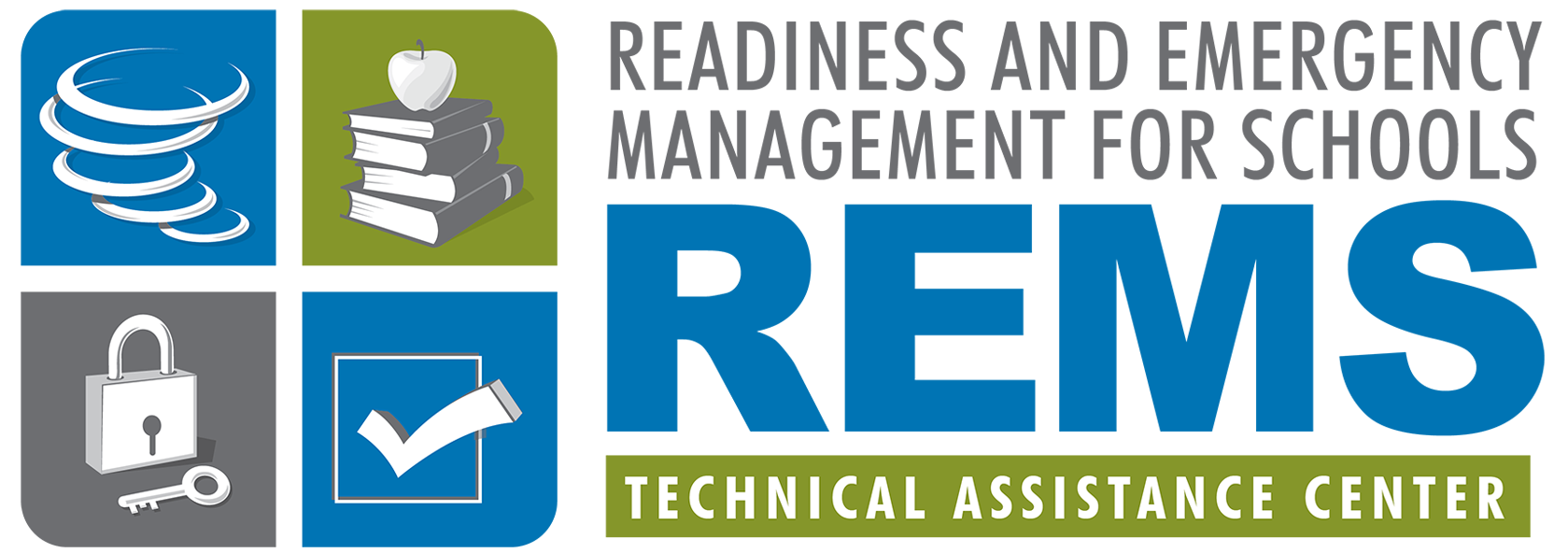Share Your Feedback
The REMS TA Center seeks your feedback to ensure that the Website is continually enhanced to meet your needs.
POLICIES AND PROCEDURES FOR MANDATED REPORTING
Mandated or mandatory reporters (both terms are correct) are individuals required by state law to report abuse ("Mandatory Reporters,” 2013). According to the U.S. Government Accountability Office (GAO) (2014), in most states, school personnel (including administrators, teachers, psychologists, and nurses) are considered mandatory reporters, but states vary in their designations. Mandatory reporters are generally those who have frequent contact with children. Some states have the freedom to decide who should be designated as mandatory reporters.
In most states, a mandatory reporter is required to report cases of suspected adult sexual misconduct (ASM) to state or local child protection services; some state laws also require that reports be made to a designated school employee (GAO, 2014). Other states can establish their own standards for reporting child abuse or neglect. Variations in state laws are a primary consideration in the development of policies on mandatory reporting laws. Some school districts have developed formal agreements, such as a memorandum of understanding with local law enforcement agencies. And, some school districts have formally required reporting for ASM crimes that happen in online settings, including sextortion and human trafficking, which are also defined in these documents as mandatory reportable incidents (Newton Public Schools, n.d.).
The differences among state laws highlight the importance of clearly documenting all mandatory reporting requirements. It is the responsibility of school officials to know state laws in areas related to ASM and to develop and enforce clear policies on compliance for all school personnel (GAO, 2014, p. 2).
ASM reports typically come to the attention of school officials (Shoop, 2004) via one of the following means:
- Formal complaints (made by the target or a target’s parent)
- Informal complaint (also made by the target or a target’s parent)
- Observed abuse
- Observed suspicious behavior
- Rumors or anonymous reports
The U.S. Centers for Disease Control and Prevention (Saul and Audage, 2007) suggests collaborating with lawyers and appropriate agencies to establish policies for employees when making ASM reports. These policies should include a chain of command and indicate whether the reporter should inform his or her supervisor(s). Ideally, only a few people should be notified to minimize the number of times the child has to discuss the alleged abuse and to ensure confidentiality. This will also reduce negative impacts to the child, the concerned reporter, and the adult whose behavior was investigated if the outcome is that misconduct did not occur. Reporting policies also should include state requirements about how soon a report should be made, as well as the consequences for not reporting, which vary by state ("Mandatory Reporters,” 2013).
A “permissive reporter” (“Mandatory Reporters,” 2013) is an individual who is not a mandatory reporter and voluntarily reports child abuse or neglect; anyone can be a permissive reporter. In at least 18 states, however, anyone who suspects abuse is mandated to report it, regardless of their profession.
According to Darkness to Light, an organization with the mission of ending child sexual abuse, mandatory reporters do not need proof of ASM to make a good faith report ("Mandatory Reporters,” 2013). If a child discloses abuse, the organization recommends listening attentively and asking “minimal fact,” open-ended questions. The goal is for reporters to let children know they are believed and that the abuse is not their fault. Asking leading questions or pushing for information could re-traumatize the child and negatively impact an investigation.
The role of the reporter is therefore not to investigate or evaluate the alleged abuse, but to report the behavior which raised concern, to those charged with conducting an investigation. Obtaining the help of a child advocacy center, as well as asking clarifying questions of the child, is acceptable
| Deciding Whether or Not to Make a Report |
|---|
| Most school employees are committed to the safety of their students, but they are often confused about whether they should report suspicious or inappropriate behavior, exactly how should they report it, and to whom. |
| The Child Abuse Prevention and Treatment Act (CAPTA) establishes minimum standards for state mandatory reporting laws related to known or suspected child abuse and offers support to states in preventing and responding to child abuse and neglect. However, states primarily define their own requirements for preventing, reporting, and investigating child abuse and neglect, including sexual abuse. |
| All 50 states and the District of Columbia require that teachers and other school officials report suspected child abuse — including sexual abuse — to law enforcement and/or child protection agencies (GAO, 2014). Teachers and school officials are therefore mandated reporters and, while they must have reasonable suspicion that abuse occurred, they need not to have witnessed the alleged abuse. |
| Also, CAPTA mandates that state laws offer protection to individuals reporting incidents of suspected child abuse in good faith, even if their suspicions turn out to be unfounded. Thus, CAPTA grants reporters immunity from prosecution (GAO, 2014). |
Title IX Requirements for Reporting ASM
Title IX regulations require schools to designate a “responsible employee” for ASM reporting. This is someone who
- has the authority to “take action;”
- is assigned reporting duties; or
- is otherwise deemed an appropriate school designee (Office of Civil Rights [OCR], 2001).
In this case, a “responsible employee” may not be the same as a “mandatory reporter.” The responsible employee is required to notify the Title IX coordinator of any and all incidents where ASM is suspected, after which the Title IX coordinator conducts or authorizes a Title IX investigation (OCR, 2008). As discussed in the next section, all ASM cases have the potential to violate Title IX regulations and therefore should be investigated under Title IX.
Legal Implications
Title IX has raised the stakes for ASM prevention. Teachers and administrators who do not intervene in ASM could be held personally liable for damages. A deciding factor for imposing monetary damages and holding a district liable for the perpetration of ASM lies in whether or not a district is deemed to have acted with “deliberative indifference” (Shakeshaft, 2004b). It is not clear from legal precedent; however, how deliberate indifference is established. While some states may penalize mandatory reporters who fail to report ASM, those who do report it are not deemed liable if it turns out their report is unsubstantiated. Therefore, the best practice is always to report when there is reasonable suspicion (“Mandatory Reporters,” 2013).
According to the U.S. Department of Education’s OCR (2014), since “the standards for pursuing and completing criminal investigations are different from those used for Title IX investigations,” the results of a criminal investigation do not affect a school’s duty to meet its Title IX obligations. Therefore, schools and school districts must report incidents according to Title IX guidelines separately and in addition to the requirements of state laws.
False Allegations
ASM, whether alleged and unsubstantiated, or alleged and proven, has a powerful effect on everyone in the school setting. Unfounded allegations can be devastating to the employee, the school, and the students (Seattle Public Schools, 2013). Even if the employee is ultimately exonerated, the damage has already been done and the stigma can linger for years (Simpson, 2006). Therefore, it is critical for staff members to understand that adult behaviors in the school are scrutinized in light of today’s headlines (Seattle Public Schools, 2013).
To avoid the misinterpretation of behaviors and the resulting fall-out, interactions with students must closely adhere to documented policies and procedures. Some behaviors are easily misinterpreted because of factors such as context, frequency, and the observer (Seattle Public Schools, 2013). Documented policies that are carefully followed provide a safe environment for both staff and students to work and learn.
Educators and other staff members often have concerns about reporting suspected misconduct by a coworker or volunteer as they fear making a false allegation. The important point to remember is that ASM policies are not about “telling on each other” or creating false allegations; reports are not about being certain or correct. The purpose of reporting is to ensure that everyone is aware of what is going on for the protection of the child as well as the staff member (Seattle Public Schools, 2013, p.7). The legal responsibilities for mandated reporting (described at the start of this section) must be taken seriously regardless of personal feelings about another staff member or the degree to which reporters are certain abuse is taking place.
Unfortunately, there are students who know the consequences of ASM complaints and are willing to try to have an unpopular teacher fired or to create problems for them by making false allegations (Simpson, 2006). Shoop (2004) recommends a written prohibition against false student complaints in school policies so students understand the damage caused by false complaints and the punishment for those who make false accusations. To be more effective, students can be taught their roles and responsibilities as it relates to adult sexual misconduct and reporting such behavior.
To assist in preventing knowingly false allegations, the National Education Association has developed suggestions on avoiding compromising situations (Simpson, 2006). These “common sense pointers for avoiding false allegations” are as follows (p. 2):
- Whenever possible, do not be alone with a student, because allegations made when there are no other witnesses hinge on credibility. Authorities often tend to favor the alleged victim in these circumstances.
- Maintain a professional demeanor and distance, which means no flirting, teasing, or joking about sex. Do not socialize with students or treat them as “friends.” Never give gifts, unless they are given to every student, and do not single out any one student for special attention or flattery. Do not ask students about their social lives or comment on personal appearance. Avoid discussing intimate details of your private life. Do not hire students to babysit or allow them to visit your home.
- Avoid physical contact with students. As a general rule, it is best to avoid most forms of physical contact, especially kissing, hair-stroking, tickling, and frontal hugging. Use common sense: A “high five” to acknowledge a job well done is fine; a slap on the bottom is not. Male employees are far more likely to be accused of inappropriate contact with students than female employees.
- Avoid using physical force to enforce discipline. When students are misbehaving or out of control, avoid touching or grabbing them to get their attention. Instead, use verbal commands and other disciplinary methods. If you must use physical force in self-defense or to prevent injury to others, use the minimum force necessary to prevent harm and immediately call for help.
- Never allow a student to obsess over you. While a crush can be flattering, an unfulfilled fantasy can result in a student acting out to gain attention or retaliating for being ignored. If a student expresses a love interest, respond with an unambiguous “no.” Don’t equivocate or encourage the student by acting pleased by the attention. It is advisable to share this information with another adult.
- Be particularly wary of “troubled” students. A teacher’s efforts to help can be misconstrued as something more and may lead to an infatuation or dependence. In addition, you don’t have the skills or training needed to assist. Refer the student to the school counselor.
- Be especially vigilant if you hold certain teaching positions. Anecdotal evidence suggests that employees who perform certain jobs are at increased risk of false allegations. These include coaches and performing arts teachers — drama, band, chorus, and debate, as well.


